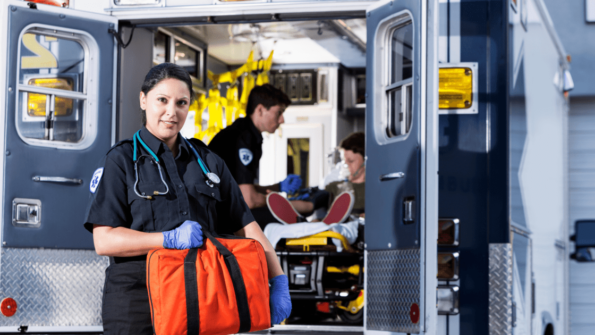Just like many medical professions, paramedics are always in demand and need in Canada. We never know when medical emergencies will happen, so we must have paramedics available at all times. Paramedics are the first line of responders whenever an accident or an emergency situation requires medical attention, so it is essential to have paramedics.
For those who want to become paramedics, there are many requirements that they must fulfill before being allowed to practice as paramedics in Canada. They must be certified by attending the necessary training and courses offered and given to paramedics in Canada.
We all know how vital paramedics are in Canada and how interested you are in becoming one. Without further ado, here is everything you must know about becoming a paramedic in Canada.
Education Requirements for Paramedics in Canada
People who want to become paramedics in Canada must have a high school diploma. They must also attend a recognized paramedic program at any college or university accredited by the Paramedic Association of Canada.
Generally, colleges require those who want to become paramedics in Canada to have taken science and biology courses in senior high school. They must also have a current standard first aid certificate and a current CPR C for the basic rescuer levels.
Licensing and Other Professional Requirements
Paramedics are classified as regulated professions in Canada, so you must get a certification from your jurisdiction’s respective regulatory authorities before working as one. Once you acquire your Paramedic diploma, you must successfully pass the provincial certification exam. This gives you the right to use the title “advanced emergency medical care attendant.”
Paramedics working in Canada are classified into primary care paramedics, critical care paramedics, or advanced care paramedics. These training and certification requirements might vary in different provinces, but they are all required before practicing the profession.
Skills, Knowledge, and Other Requirements Needed
Paramedics must also have other skills, knowledge, and other relevant requirements to perform well on the job. This is aside from obtaining the required educational requirements, licenses, and professional certifications.
Paramedics must assess the extent of injuries or illness of trauma victims to determine which emergency medical treatments are needed for the patient’s conditions. They must administer pre-hospital emergency care and medications and provide advanced emergency treatments to patients.
They must transport patients to the hospital or other medical facility for further medical care to ensure they survive. They also assist hospital personnel in providing medical treatments to emergency patients. Lastly, they also maintain ambulances and other emergency care equipment and supplies.
Paramedics should also have adequate knowledge of client service, transportation, medicine, public safety and security, biology, and chemistry.
Lastly, a paramedic must also have no communicable diseases, complete an immunization package, and be fluent in English, French, or both.
Salary, Wages, and Demand for Paramedics in Canada
Paramedics earn a decent amount in Canada, just like the other medical professions in the country. According to the latest available figures, a typical paramedic working in Canada full-time earns between $55,000 and $75,000.
According to the same records, Ontario paramedics earn the highest hourly average median wages at $42 an hour. On the other hand, New Brunswick and Prince Edward Island paramedics make $25 an hour, the lowest recorded average wage in the country for paramedics.
The demand for paramedics continues to be at a reasonable rate across the country for several reasons. First, there’s always the need when someone gets into an accident and needs immediate medical attention.
Second, health problems such as heart attacks or cerebrovascular incidents require a licensed paramedic’s expertise and skills. Lastly, the paramedics currently serving in Canadian hospitals are also nearing retirement age, so replenishing the workforce with new paramedics is necessary.
Following currently available records, there are expected to be 8,300 paramedic retirees each year in Canada, and there are expected 8,800 paramedics ready to fill in those slots. As you can see, there is an abundance of demand and supply in Canada for paramedics.
Remember that every job and occupation related to the medical industry will always be in demand because people are dying and are born constantly at every hour. Also, medical attention is a universal human right for everyone, so the entire population will use these services at one time or another.












